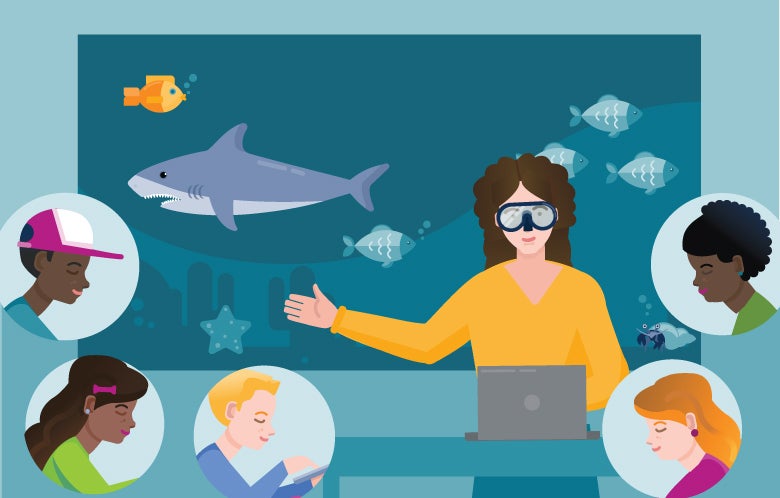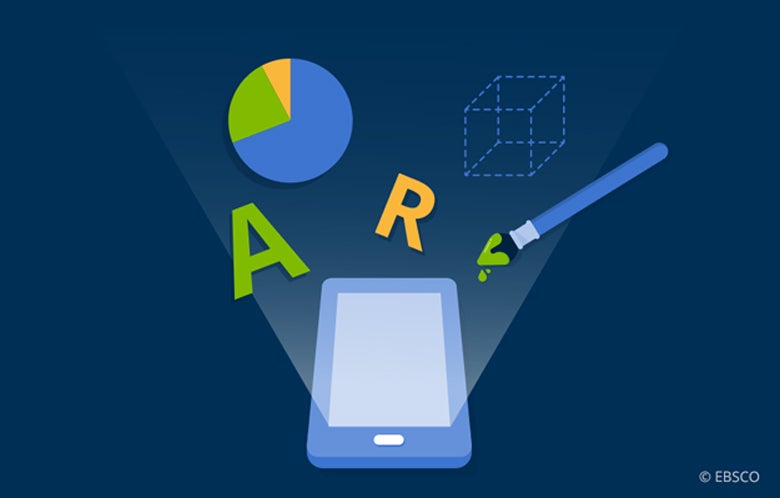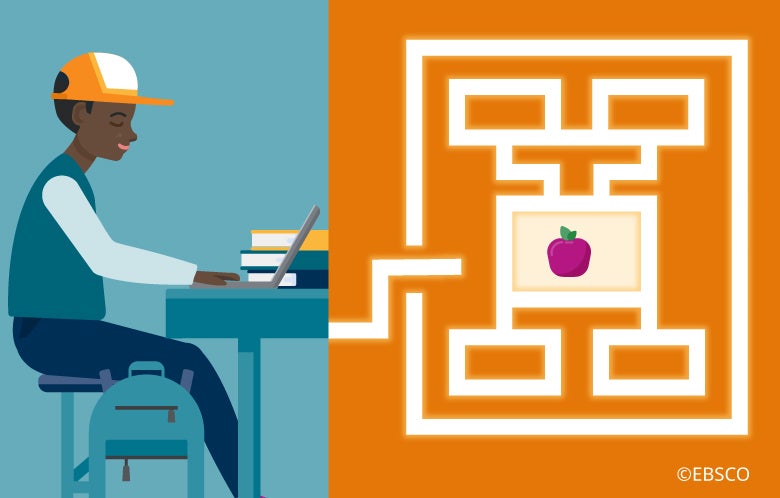The move to remote learning during the COVID-19 pandemic has forced educators to find new and innovative ways to deliver curriculum to their students. The virtual field trip has become a popular pedagogical strategy for connecting young people to enriching educational experiences from the comfort and safety of the classroom — or home.
Benefits
Jasmin Poor, virtual field trip coordinator at Roper Mountain Science Center in Greenville, South Carolina, recently described the value of virtual field trips to ISTE conference attendees. Virtual field trips are not limited by distance and are typically more cost-effective than traditional in-person field trips. They eliminate the need for transportation, decrease lost instruction time spent on travel, and involve fewer safety concerns (no permission slips required). In addition, virtual field trips create enriching, interactive experiences that cater to students of all learning styles and expose them to diverse perspectives.
“Technology allows students to travel the world, both in time and space,” said Poor, who teaches elementary and middle school e-lessons. “I want to spark students’ curiosity so that they are inspired to go out and learn.”
It is important to note that virtual field trips are not without barriers. To participate in virtual field trips, educators and their students need internet access, a webcam (so the presenter can see the class), and a way to project an image on the whiteboard. Educators must also have a decent microphone and be aware that field trip content providers may be in a different time zone. Some virtual field trip providers also charge a small fee.
Web Resources
The Center for Interactive Learning and Collaboration (CILC) offers free community learning programs for students of all ages every weekday at 1 p.m. ET. These virtual programs are typically 45 to 50 minutes and provide students and educators with opportunities to “visit” museums, national parks, zoos, aquariums and science centers.
WeAreTeachers.com compiled a list of the best virtual field trips available via YouTube and the web, including the Smithsonian’s Natural History Museum and Farm Food 360, which offers free 360-degree video tours of Canadian farms and the foods they produce. For literature and drama teachers, TheatreWorks USA is bringing exceptional theatrical experiences directly to homes and classrooms. The cost is typically five dollars per student. Math and science teachers will enjoy the National Museum of Mathematics, Exploring by the Seat of Your Pants and the Academy@Home series offered by the California Academy of Sciences. Finally, History.com has curated a list of the top 10 history museums to explore virtually, including the British Museum, which presents online exhibits and browsable archives of ancient treasures and artifacts. The American Battlefield Trust offers a variety of 360-degree virtual tours of American battlefields from the Revolutionary War, the War of 1812 and the Civil War.
Educators may also be able to locate virtual field trip opportunities in their state. Connect 2 Texas is a network of Texas-based educational content providers ― including museums, authors and cultural, historical and scientific organizations ― who use interactive videoconferencing to deliver live educational programs and professional development to students and educators across the country. Educators can use the site’s program filter to find free events by grade level and content area.
A variety of affordable subscription resources are also available. Field Trip Zoom and Streamable Learning deliver live and interactive learning experiences for K-12 educators, students and homeschoolers. Also, be sure to check out this collection of virtual field trip apps and websites from Common Sense Education and these tips for planning virtual field trips.
EBSCO Resources
In their research on environmental education field trip programs, Lee, Stern and Powell (2020) found that “factors influencing field trip success often occur before and after the trip” (p. 1000). They argue that pre-visit preparation and post-visit follow-up activities can enhance student learning outcomes and increase achievement.
EBSCO offers several resources that educators can integrate with virtual field trip activities:
1. Integrate library databases into pre- and post-visit activities.
Explora, an easy-to-use search interface available for elementary, middle and high schools, is a great starting point for student research before virtual field trips commence. Topic Overviews provide background information on a variety of topics, and more than 60,000 videos from the Associated Press include primary source footage of people, places and events.
Science Reference Center includes thousands of full-length biographies of scientists, science videos and animations, a vast image collection including photographs from the world’s best nature and wildlife photographers, and infographics of 60 U.S. National Parks featuring historical facts and scientific data about each park’s size, topography, animals, plants and more.
History Reference Center contains thousands of primary source documents and over 80 hours of historical video to use in conjunction with virtual field trips related to U.S. and world history.
Attending a virtual theatre production or arranging a virtual author or poet visit for high school students? Familiarize them in advance with content from Literary Reference Center Plus and/or Poetry & Short Story Reference Center. These databases include thousands of full-text poems, short stories, plays, author biographies and more. Poetry & Short Story Reference Center also includes audio recordings of poets reading their works (and the works of other poets), high-quality videos from MacNeil/Lehrer Productions, and Poetry Showcases from The Paris Review.
2. Incorporate virtual field trips into career exploration.
Assign students to learn about occupations that interest them using PrepSTEP for High Schools and Job & Career Accelerator. Then tap various professionals in your community to give online talks about their careers.



